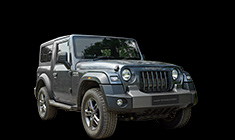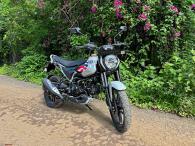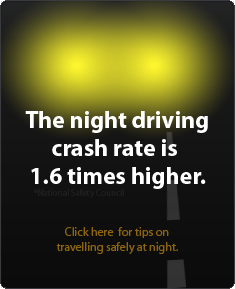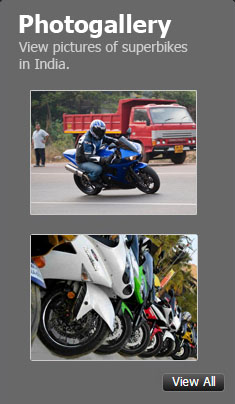News
Riding to Nepal after Gorkha earthquake to volunteer in relief tasks
In Kathmandu, we met a guy who had driven down a Bolero pick-up carrying essentials from Darjeeling representing the Glenn Family Foundation.
BHPian Hirohito recently shared this with other enthusiasts.
25th April 2015. Home. Assam.
A massive earthquake shook the very ground. While it lasted only for a few seconds, it almost felt like an eternity. The solid ground where I stood, felt less so and more like a flimsy carpet waving underneath. As the dust settled, news revealed that the epicenter was in some part of Nepal. Later that evening when I went for dinner and turned the TV on, images and videos began surfacing. Only then did it register the scale of its fury. It later came to be known as the Gorkha earthquake (the epicenter was in the Gorkha district of Nepal). A strange desire took over instantly to ride into Nepal. I was prepared to do whatever it took to be there. I drafted a mail, representing our motorcycle club, and sent it left, right and center hoping for some positive response.
Looking for a partner
That evening I called up Denny, who is fluent in Nepali thanks to his time at Sikkim Manipal University and we both happened to have done some challenging group rides across Arunachal Pradesh together. One was the journey along the course of the river Siang in Arunachal Pradesh (which becomes Brahmaputra in Assam), from Pasighat all the way to Tuting.
Denny wears a disarming smile and a way of befriending people that I terribly lack.
He had just returned home after a high-altitude ride in lower Mustang valley (Muktinath) in Nepal. One rider in the team experienced AMS/altitude sickness, which came as a blessing in disguise for them. They cut short their plans of riding the upper Mustang valley and reached home just one day before the earthquake struck.
Looking for a taker
Most organizations responded to my email reluctantly. Not everyone saw the usefulness of two volunteers on two motorcycles in that situation. As luck would have it, my email finally found someone named, Adele. It was she who connected us to Child Reach International, Nepal.
Although Child Reach is mainly about children and education, they were completely committed to relief operations at the moment, sending young employees on bikes to survey and distribute emergency supplies like instant noodles, salt, sugar etc. By the time my email reached Child Reach, their staff were reaching exhaustion and needed replacements. I jumped at the opportunity!
The journey
Since my bike awaited some major repair that needed both time and money, I borrowed another club member, Dishan’s new model Thunderbird (with rear disc). Denny reached my home after a 5-hour journey from his hometown. We spent the night together and proceeded towards the Indo-Nepal border town of Kakarbitta the next morning i.e. the 8th of May 2015. After a quick immigration process, we entered Nepal nearing dusk and stayed in a seedy hotel in Bittamod. We expected traces of the earthquake, but life here appeared normal. This part of Nepal could easily hide the fact that another part of Nepal was grappling with a crisis of this magnitude.
9th May. Japanese highway
The next morning, we started early and grabbed some breakfast near Sinduli. Soon we were riding on the much-touted Japanese-built highway.
Apparently, one could take turns faster and brake better because of the texture of the road surface.
By evening we reached the mother of all traffic chaos, Kathmandu! We checked into a hotel in the middle of, once touristy Thamel. The front wall of our hotel had developed a crack and Thamel itself appeared eerily quiet. An aftershock came as I was taking a shower in the hotel. Towards evening Shakeel from Kathmandu Standards dropped by and led us to the Handlebar café to hang out with his riding buddies. On the way more than once we had to slow down to dodge overhead power cables dangling across the road.
There we also met this person who had driven down a Bolero pick up carrying essentials from Darjeeling, representing the Glenn Family Foundation. He narrated his story thus…
“I came in the aftermath of the quake with relief items. But after seeing everything firsthand, I didn’t want to go back right away. So, I volunteered for Mighty Nepal (a famous NGO). As a volunteer we just have to board a blue truck every morning, escorted by a police car. Our job is to demolish houses that are beyond repair.” The cops escorted just in case owners refused to let them in. For the rest of the evening, we heard personal stories of lucky escapes and colossal losses. I got a phone call, with instructions to reach the small town of Melamchi in Sindhupalchowk district of Nepal.
10th May. D-Day
We grabbed some breakfast in an empty cafe and bought emergency supplies from a store. Emergency food, some spare batteries, Dettol and other items. We were preparing as best as we could, so we didn’t end up being a burden. Soon we left the Kathmandu traffic behind us. The landscape transformed into open green fields and occasional houses, cracked and deserted, like relics from a war. The only vehicles were the blue trucks and buses filled with volunteers all the way up to the roof. Some white men and women too. Everyone wore the same shell-shocked appearance on their faces.
As we rode further, I could see isolated damaged houses that now stood like battered battle tanks, in the middle of open picturesque fields. People, displaced by the earthquake, now living by the road. Melamchi arrived before dusk and looked like a scene from a war movie - devastated. Broken window frames, beds with upturned mattresses, bricks, all splattered on the road.
We spoke to our contact, Pratik and reached the camping ground for relief workers which was on a small hillock. We were allotted a camping spot where we quickly pitched our 5 men Coleman.

With the shovel that they handed us, Denny began digging a rain gutter and right then something magical happened - a gust of wind filled the sky with soft white cotton balls.
As we panned our eyes, we realized the international scale of the ongoing relief effort. Next to us were massive Czech military medical tents, that had operating facilities inside. There were Japanese tents and more. Meanwhile, materials kept coming in and we had to lend our hands carrying them into a tent turned into a store. The camping ground was part of a school compound where two kids died during the quake.
I went for a smoke break with Denny and from the edge of the ground, I could see the trail of destruction across Melamchi.
11th May. Our First Task
We had to accompany on our bikes, a team of volunteers including a paramedic from the US army and reach the village of Dubachaur and help set up a medical camp. The structural damages at Melamchi were shocking of course. But what we were going to witness was much more tragic. We followed the Bolero pick-up to Dubachaur on our Thunderbirds and moved further away from Kathmandu’s urban landscape. The destructive force of the quake became even more evident in the area that we now passed.
Houses made of clay and stones lay completely flattened, along the road.
We arrived at Dubachaur on a dirt road, with some tricky muddy sections, which we took into our stride.
A portion of a compound that used to be a school in Dubchaur was allotted to us.
Our team relieved a set of English doctors who were there for a couple of hours on their way back from somewhere. We added some tarpaulin, using bungee cords for protection from the elements for waiting patients.
Next morning a large group of people needing medical treatment arrived at the compound.
Soon Denny had to be roped in as an interpreter with the team.
He would listen to the patient, then translate the symptoms to Evan, Evan will ask if he has any queries for the patient, through Denny, and in the end, it was Denny who explained the medicines to the patient. Since I didn’t know any Nepali, I had the time to stroll around the village on my own and witness life at close quarters.
Most people were digging through rubble, trying to dig out their possessions.
At that moment I spotted a World Sikh Aid truck plodding down.
OUR BEST CHANCE
The earthquake struck on a Saturday, and that meant children were home, together with their families, because looking at the state of the schools and the chaos that could have followed, anything could have happened starting from a stampede to children gone missing.
I passed house after house, all flattened to the ground, making it possible to see from one end of the village to the other without any visual obstruction. Someone had earlier mentioned that 90% percent of the houses in Dubachaur area were damaged beyond repair.
Meanwhile, Evan Miller and his team, along with Denny kept working till late
Late in the evening, as things became quieter, we got to spend some brief light moments inside our tent. For the first time, we had the time to speak to one another. Their team included a paramedic (Evan Miller) and four Nepali citizens from the US (together they formed the relief team from the Touro Graduate School of Technology). A lengthy severe aftershock jolted us from our sleep near dawn. But by the time we could find the zipper, it was gone. When we finally got out, the overhead cables were swaying violently. It was scary not knowing what more to do exactly. We were already out in the open. And that was our best chance!
12th May. Massive Aftershock
The next day the team got busy once again treating the injured. I met several people who had come to get treated not for any physical injury but from forms of psychological trauma like rolling head.
Another massive aftershock hit us in the middle of the day, and we shifted our makeshift camp from the veranda to the open compound now.
When I went back to the veranda where Evan and his team were caring for the patients, it was a scene of complete chaos. Valuable medicines were splattered on the floor, saline pouches and bloodied gauges. That evening we received a messenger asking us to return to Melamchi the same day.
We dismantled the tents and headed down to Melamchi along with the team comprising Evan, Prerna, Namrata and Supath. They were immediately whisked off to Kathmandu in a Gypsy hardtop while we had our dinner outdoors at Melamchi due to safety concerns.
Dubachaur once again
Over dinner, we were introduced to three new faces. An English doctor, Dr. Mike and another young doctor, Dr. Talha from Pakistan who had come through Doctors Without Borders. Accompanying Dr.Talha was a young lawyer from Pakistan, Noman Qadri. We had to accompany them to Dubachaur the next morning. We followed the same routine as before. Follow the Bolero pick up where Dr. Mike now sat. The Pakistani duo were keener on sitting behind our Royal Enfields. The day began with us setting up tents and the doctors treating the injured. By evening the number of incoming patients dwindled down.
I noticed an old man climbing atop what used to be his shop. When asked he said he was looking for a piece of furniture.
Denny and a local man taking out the furniture.
Towards afternoon we ran out of some essential medicines, and someone needed to ride down to Melamchi base camp. As Denny was the only interpreter for the team now, standing between the patients and the doctors, I decided to go alone. I returned to Dubachaur after dark.
Over dinner, I placed a proposal to the team for the next morning. I suggested that we leave Dr. Mike with half of the medical supplies, while we pack the rest in our saddle bags. Then carry the Pakistani duo on our bikes and ride further ahead, to see if we could cater any help. Everyone instantly agreed.
14th May. First to reach
Dr. Talha outside our tent
First thing in the morning, Dr. Mike and Dr. Talha divided the scarce medical supplies and we loaded our portion on our bikes. Dr.Talha and Noman sat behind us, and we began our journey beyond Dubachaur into the unknown. Two Indian motorcyclists, with two Pakistani pillions, in Nepal, on motorcycles that were originally built in the UK. That became a joke in Melamchi when we returned later that night. Throughout the morning we crossed small hamlets annihilated and deserted and an all-pervasive stench of dead cattle.
Noman Qadri took co-ordinates, while Denny spoke to the few locals who we came across on the road asking their whereabouts.
At around midday, we finally spotted a group of people and a few soldiers sheltered near a temple.
Some of them needed medical help, especially a kid on her mother’s lap who kept crying holding her wrist. Dr. Talha held her wrist and diagnosed a fracture. He now needed a splint to keep it in place. A local man took out his khukri and chopped out a makeshift bamboo splint in no time.
After treating a few more patients, and collecting information about the situation ahead, we moved on. Villagers said we were perhaps the first medical help to reach them since the earthquake struck 20 days ago.
Not surprising, as these places were connected only by narrow mountain trails, making them difficult to reach on four wheels.
By late afternoon we reached a village called Baruah village. People began streaming in. Since we were the first medical team to arrive since the earthquake struck, we could see people walking around with open injuries and broken bones. The Nepalis are undoubtedly a hardy breed of people and jolly too. While Dr. Talha went about stitching the injuries with Denny as the interpreter, Noman and I found a stream and freshened ourselves. It felt like heaven.
Dr.Talha treating an open head wound
Making a splint with khukri, for the second time so far
We were invited to share their scarce supplies when they got to know we haven't had lunch.
Post noodle lunch, we then moved further up, until there were no more roads. I decided to stay with the bikes, while the trio hiked up.
They located another settlement uphill, in need of medical intervention. The team sent a local boy with a note in his hand listing out the things that they needed me to send with him.

By the time we reached Dubachaur it was dusk, and our tents were already packed and loaded on the truck. On the other hand, Dr. Mike had a relatively free day and we were to return to Melamchi that same evening.
That evening once again we had to have dinner outside in Melamchi, but this time because we were celebrating a lady officer’s birthday and got to eat a comparatively extravagant dinner - mashed egg with rice, some beer and a cake. Our small engagement with Child Reach International had come to an end. So, we decided to tag along with riders from FORE (Friends of Royal Enfield) who were riding to Dubachaur the next morning.
Relief materials still pouring in.
15th May. Spraying Phenyl
Riders from FORE were going to spray phenyl as dead cattle remained a threat to health and hygiene. We went house to house in Dubachaur wearing the spray kit on our back. Cattles in their sheds, mostly perished. Their corpses were then hastily buried in shallow graves. With rain and heat, it didn’t take much time for the stench to rise above the surface.
In Dubachaur with riders of FORE
That evening we rode back with the FORE team and reached Melamchi once again.
16th May. A climactic return
The next morning, our tanks were filled up from their stock of fuel and we moved out.
I wish I could stop our story right there. Everything looked great and maybe even slightly Quixotic. But what’s a journey without a twist, right?
We two were upbeat and decided to meet some of our friends for lunch near the Assamese town of Kokrajhar. It was a bit a of distance, but we both were confident. After crossing the Japanese highway, we came to a junction and I stopped unable to decide. But thanks to his recent trip through Nepal, Denny looked more confident than me and chose one without a second thought. I followed.
After riding for a while, I felt what can be called a DeJa'Vu of sorts. I was sure I had been on that road back in 2012 during my return trip from Ladakh. (We had entered Nepal from Uttarakhand near Mahendra Nagar).
I chased down Denny and waved him to stop. We both realized our mistake, turned back and lost some valuable time. To make up for that loss, we rode a bit faster now, weaving through traffic, heading towards the Indo-Nepal border of Kakarbitta. At one time, as he was struggling to overtake something, I passed him from the left. As I watched the town behind me getting smaller in the mirror, what bothered me was not seeing Denny in the mirror.
I pulled over. A few minutes later, a van pulled over and the driver spoke in Nepali. I figured he was suggesting that I go back to check on my friend. A number of thoughts played through my head as I turned back with a heavy heart and rode towards Bijaynagar. Soon enough I spotted a crowd that had gathered with Denny and his bike at the center. He was trying to kick-start his bike. His riding jacket was torn in a few places, but he looked alright. I was relieved that he was conscious and could speak. If I had to speak Nepali, it would have been a much bigger disaster. I went up to him and helped him start the bike. It came to life and just as we were about to leave, a cop in a blue shirt sat behind Denny and took us to the local police station.
I had plans for the evening at my home. A friend in the army was getting transferred and was having a farewell party and I wanted to attend that. Things were suddenly not going as per our plans. At the police station, we realized that the cops were okay if I left but they couldn’t let Denny leave. Not without making him sit with the other party involved in the accident. But who is this other party? Some guy in a Hero Splendor, who was whisked away to a hospital immediately after the accident. So, we had to wait for someone from his family to come. By evening I was finally giving up all hopes of reaching home the same day.
To add fuel to fire, the cops wouldn’t allow Denny to leave the police station compound, to stay comfortably in a hotel. His left arm was hurting, and I got him some pain killer.
I was a bit upset by then at the cops, at the situation, especially watching the SHO coming in and going out in an Indian-made truck. That logic looks silly in retrospect.
I decided to pitch my tent right in the front blocking their entrance. The cops realizing the situation and my rightful anger, requested us to pitch our tent in a sheltered parking spot inside their compound. They took out their bikes and gave us the space. The cops sympathized with our situation and offered us dinner from their mess. It rained heavily that night and we were glad to have a roof above our tent.
Morning view from our tent
The next morning someone from the other guy’s family came by. Our local riding friends also came, and we had several rounds of talks and finally a compensation amount was agreed upon. More than 24 hours after the incident, we were finally allowed to leave in the afternoon. Another member of FORE took us to a lavish resort nearby and we spent the night there and the next morning he escorted us till the Indo-Nepal border town of Kakarbitta. We reached Assam that very day.
NOTE
This ride was in addition to the relief fund that was collected by all the Enfield clubs of Northeast India (together called NEAR – Northeast Alliance of Riders) including ours, supporting Nepal in its hour of need.
Check out BHPian comments for more insights and information.

















